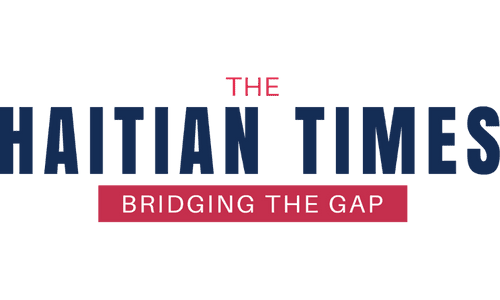Since I received my first diplomatic assignment to Doha, Qatar, I have undergone 36 weeks of language training to prepare for post.
U.S. diplomats are often required to go through language training before embarking on their next post if it is needed, depending on their post and job position.
I spent the last eight months learning Arabic (Gulf) and documented my experience to share.
In this blog post, I’ll talk about my first time undergoing language training as a diplomat and my honest experience learning Arabic through the curriculum and system used to train American diplomats.
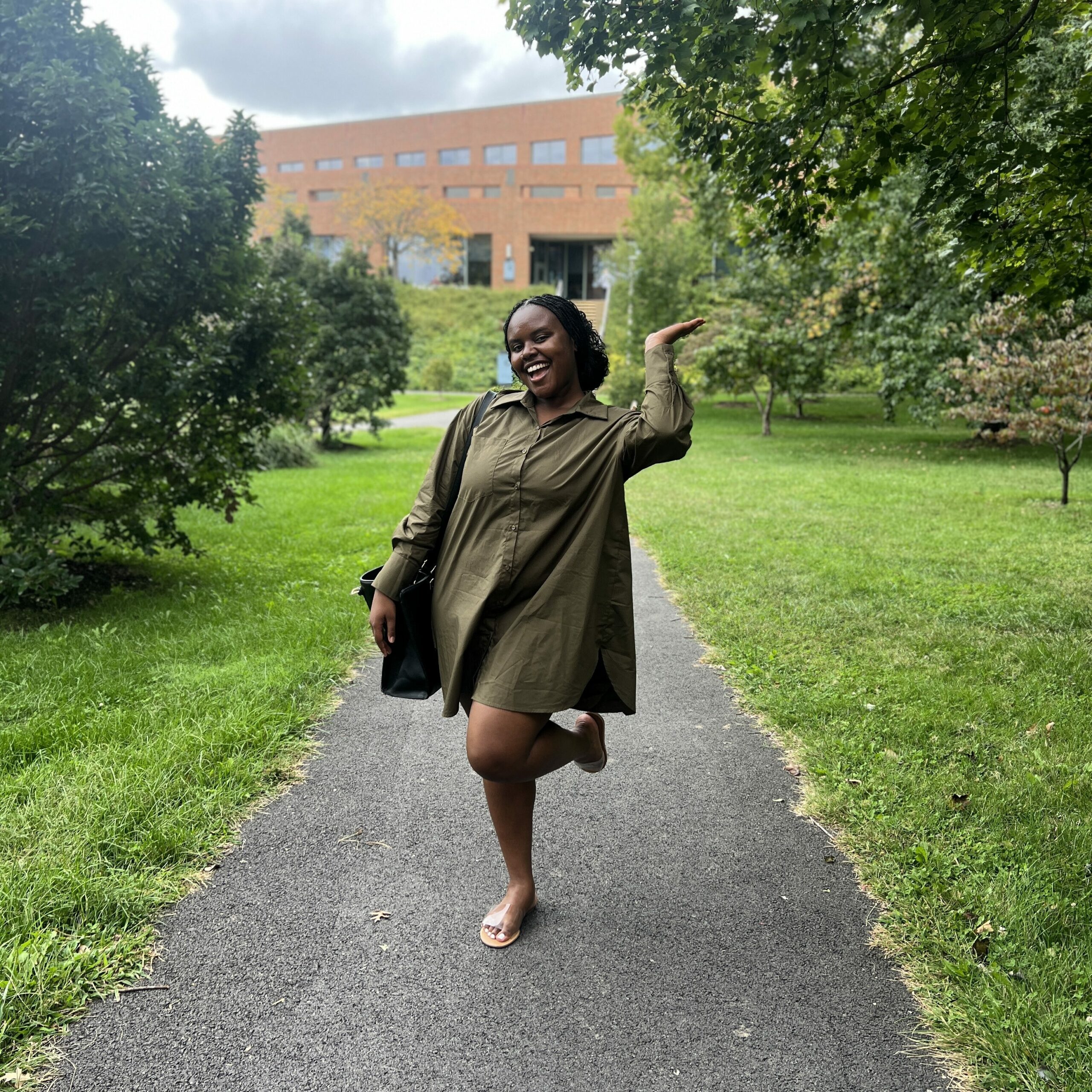
Table of Contents
ToggleRelated Blog Posts:
- How I Became A U.S. Diplomat
- Coming to Terms With Entering My Career: My A-100 Orientation Experience
Disclaimer Section:
I’ve only written two blog posts about my diplomatic journey so far, the last one over ten months ago, but it has already become clear to me that sharing in the way that I choose to do has consequences, both positive and negative.
Many diplomats, especially ones of color, don’t openly share their experiences, and I understand why. It comes with a lot of scrutiny in an already intense workplace environment.
With that being said, this is going to be very honest. I do not sugarcoat my experiences because I genuinely think there is already too much of that done to entry-level officers and those interested in pursuing a diplomatic career.
If you’re looking for a hyper-positive blog that ignores the realities of situations—such as the dynamics of being Black within a predominantly white organization—then my blog is probably not for you, and that’s okay.
This will always be just one perspective among many.
This is the United States, and race, whether we choose to acknowledge it or not, impacts every aspect of life for some of us.
So just a few friendly reminders before I dive in:
- Opinions expressed in this blog post are of my own accord.
- My experience with language training will be based on a wide range of things, including diagnosed ADHD.
- If you are a fellow diplomat who happens to stumble across this post, if you take nothing else from it, just know that I recommend Arabic as a language. It is a beautiful language that I enjoyed learning.
- Going through the same language program and having a different experience does not dismiss the experience I had.
- Pursuing a diplomatic career will always be something you have to experience for yourself to find out if it’s truly for you, so take everything I say with a grain of salt and always remember that it is my experience and may not be yours.
What is Language Training?
Depending on the country, job, and languages spoken in-country, diplomats are expected to have working proficiency in the language of their assigned post.
Language training is an assigned period during which a diplomat’s only job is to attend intensive language training at the Foreign Service Institute (FSI).
The Institiute provides diplomats with instructors, books, online materials, and everything else they need for the duration of their training.
I would describe language training as an intense crash course in a language that ideally should take two years to master to a certain level of fluency.
The goal is not necessarily to be fluent but to have limited working proficiency.
Two weeks after I found out I would be going to Doha, I began eight months of language training.
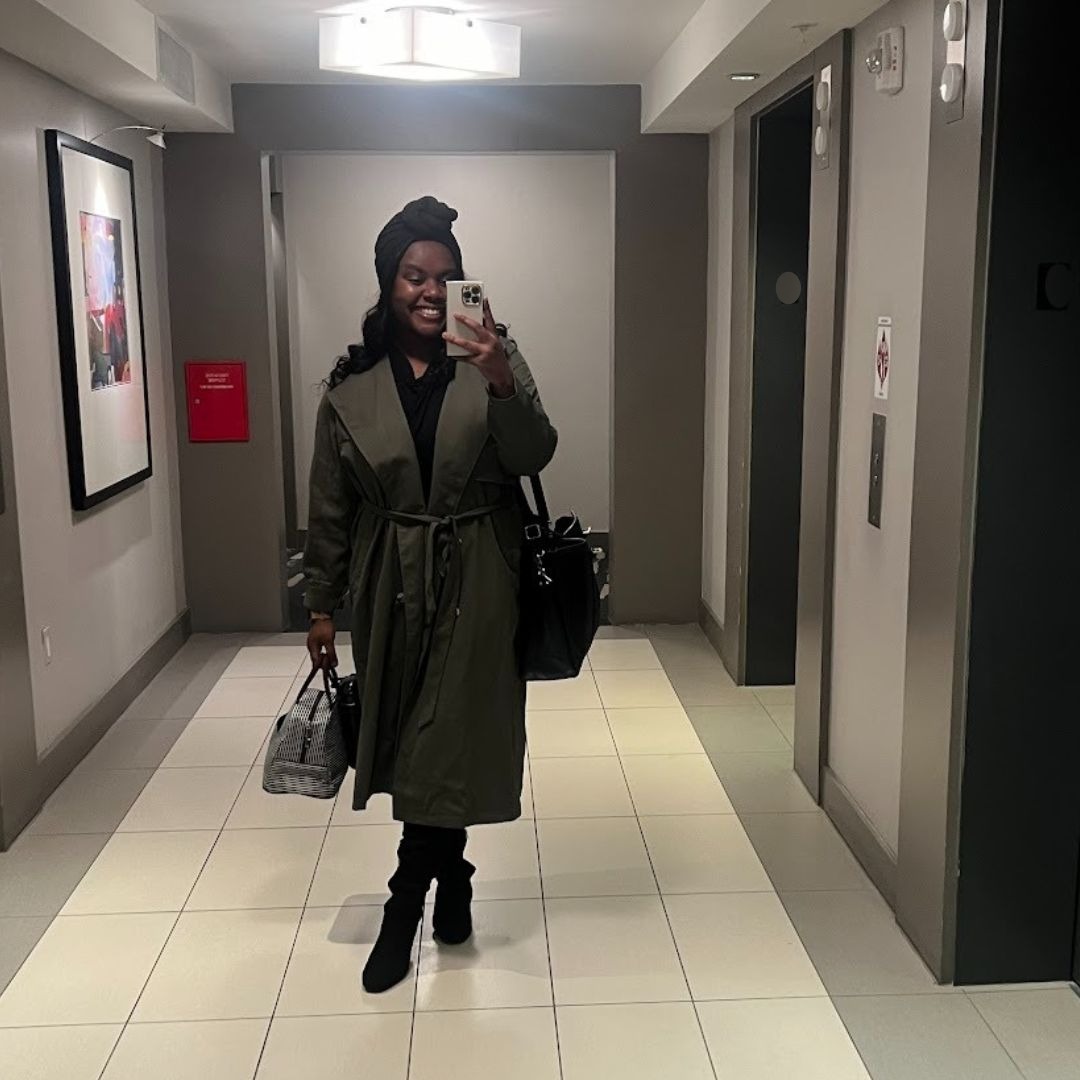
The Arabic Dialect I Studied: Arabic Gulf
Arabic is one of the most common languages spoken worldwide.
I was also surprised to learn that there are dozens of different dialects within the language that vary depending on different regions and countries, reflecting the cultural diversity in the Arab world.
For example, while Modern Standard Arabic (MSA) is considered to be universal, the Egyptian dialect is spoken in Egypt, Levantine is spoken in Syria, Jordan, Palestine, and Libya, and the Sudanese dialect is used throughout Sudan.
Being that I will be in Qatar, a country located in the Gulf region, I learned the Gulf dialect of Arabic.
Throughout this blog, you’ll notice that I often specify ‘Arabic (Gulf) ‘instead of just ‘Arabic’ to make this distinction.
Fun Fact: Arabic is written and read from left to right!
Initial Impressions of Arabic
When I found out I would be learning Arabic, I was admittedly extremely nervous.
Looking back, the alphabet definitely intimidated me since Arabic is written in a different script.
In addition, there are four ways to write each letter, as the forms of the letters change depending on their positions within a word.
However, I can say that Arabic ended up being surprisingly easier than I expected it to be!
Once I could recognize the letters and mentally pair them with sounds, I was able to read fairly quickly!
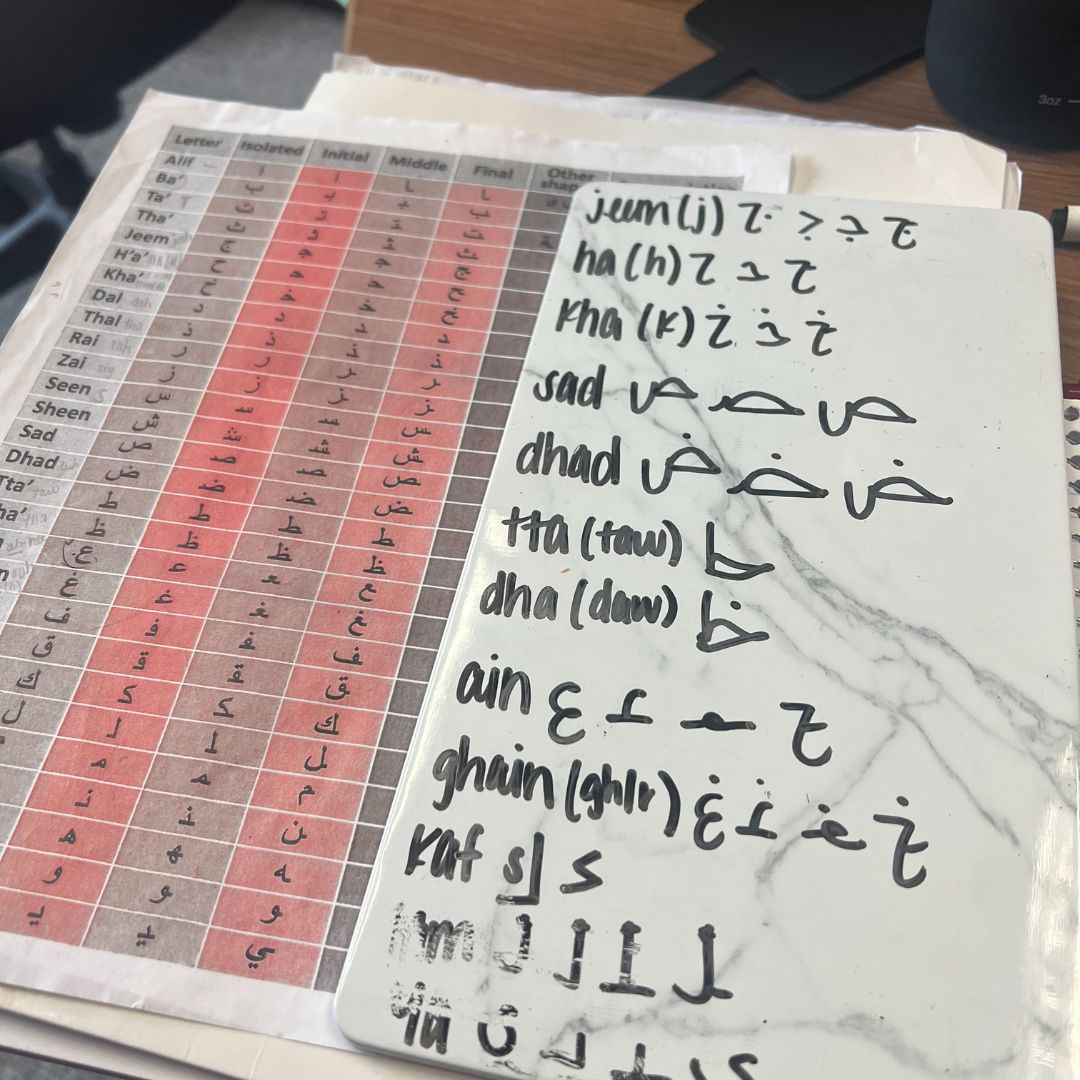
What Does A Typical Day of Language Training Look Like?
Language programs are designed so that students have five hours of in-class instruction with the expectation that they will self-study for three hours after class for a total of 8 hours/day.
Spoiler Alert: Studying and completing homework assignments usually took longer than 3 hours, so it was really more like 10-12 hour days.
A typical day of language training for me lasted from 8:40 am – 2:30 pm and looked like the following, with breaks scheduled every hour for 10 minutes:
- 8:40am – 9:30am: Practice Speaking/Warm Up/Review/Games
- 9:40am – 10:30am: Lesson Plan of the Day
- 10:40am – 11:30am: Lesson Plan of the Day
- 11:30am – 12:30pm: Lunch
- 12:40pm – 1:30pm: Reading
- 1:40pm – 2:30pm: Reading
Every day was similar for the most part, with the exception of a few special programs, progress assessment days, and virtual classes one time a week every two weeks.
I have taken short French classes for about four hours a week in the past, but it was nothing like this.
Even if you have taken a language class before, you may have never done one at FSI, which is likely very different.
The Curriculum
The Arabic curriculum is extremely vocabulary-heavy.
Unlike many other languages that may share similarities with English, Arabic has a distinct vocabulary, so it is essential to gain as much vocabulary as possible to speak and understand the language.
Every day, a new lesson was covered, which came with roughly 24-30 new vocabulary words, more or less to memorize before the next lesson, which was the next day.
Each lesson builds upon what you learned and covered in the last ones, so if you aren’t memorizing the vocabulary words, you essentially won’t be able to completely follow the new lessons.
Also keep in mind that throughout all of this, you are learning vocabulary for high-level topics like economics, politics, security, etc. and not a lot of conversational vocabulary words, though you should have enough to be able to say basic phrases and sentences.
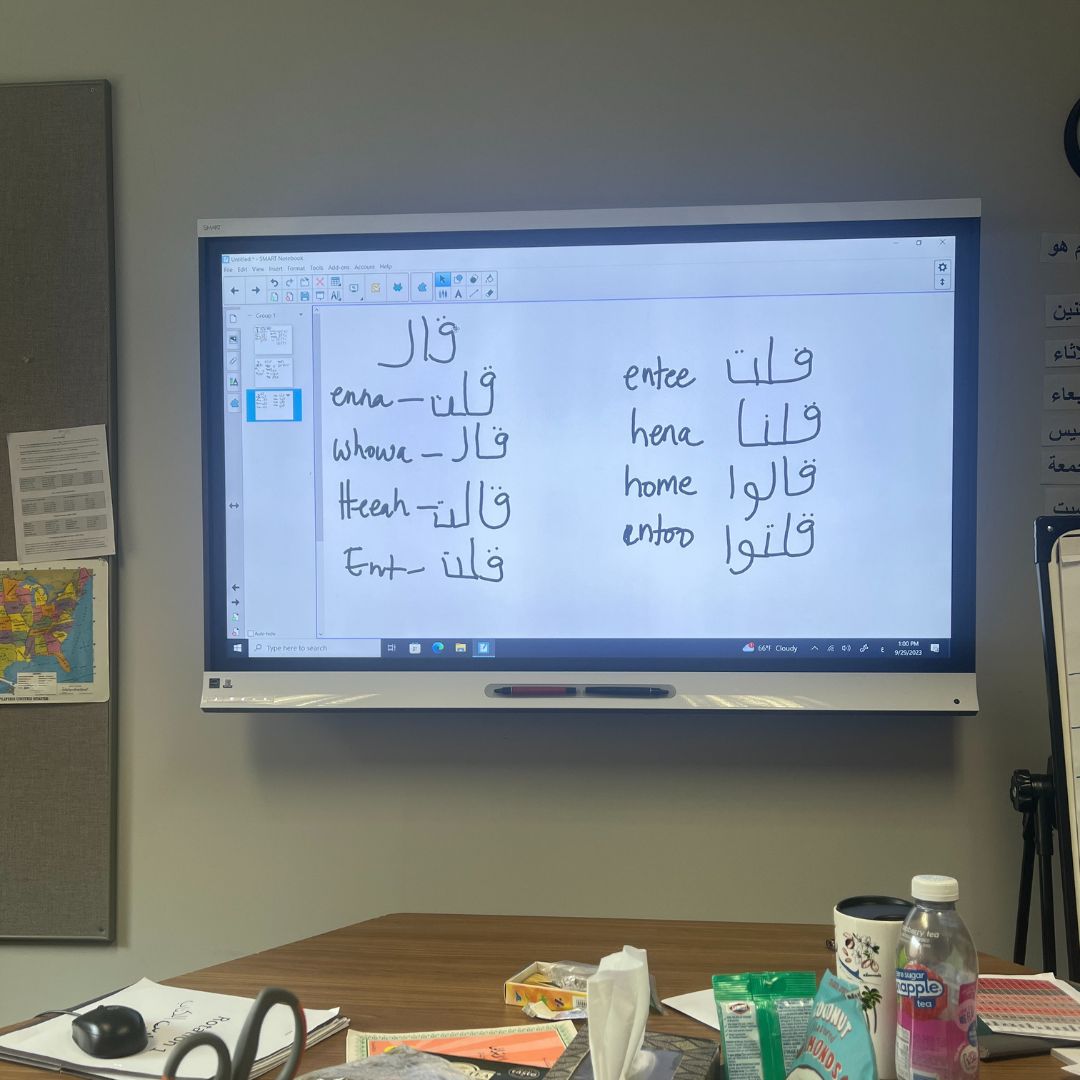
Language Class Structure
One thing I love about language training is that the class sizes are smaller, fostering a more personalized learning experience.
I only ever had two other classmates throughout my entire time in training, although class sizes can have more people depending on resources and the instructors.
Being in class with other students meant we took turns speaking, asking each other questions in Arabic, interpreting reading passages, etc.
The Instructors
Instructors at FSI are typically native speakers.
This is another aspect of the training environment I loved because, in addition to getting instruction from people who have grown up speaking the language, it also allowed for great insight into the culture and everyday life in various countries in the region.
Many of my instructors were from Saudi Arabia, Qatar’s neighbor, so I got brief overviews about life in the Gulf and Arab culture in general.
I am extremely new to the region, having never traveled to the Middle East before, so it was very helpful for me to learn more about how Islam is intertwined with the culture, various gender norms, and other dos and don’ts.
Your instructor also greatly impacts your language learning and class culture experience, which can go both ways.
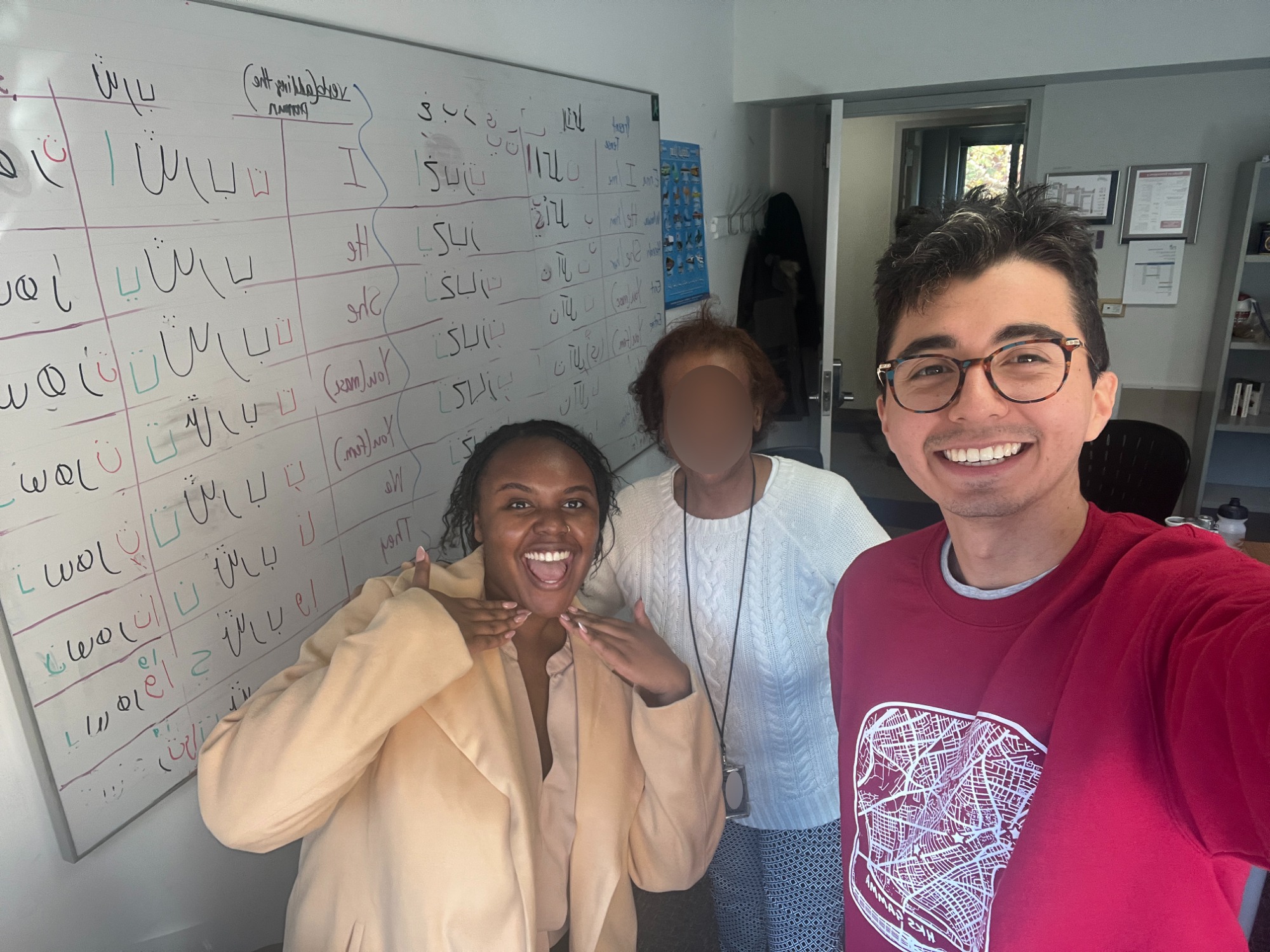
Classmates
Your classmates in language training are people that you are spending about 40 hours a week in a very intimate setting daily, so it matters and can make all the difference.
I had classmates with backgrounds in similar languages, spouses who were native speakers, lived in the region, etc. All really great things, as I enjoyed learning from my classmates as well and hearing their stories!
I am thankful to say that I had amazing classmates (for the most part) who were supportive and didn’t add to the many stressors I experienced.
Other Observations
Language training is also where I feel like I got a front-row seat to the kind of bias that awaits me in the Foreign Service and even more of the realities of being Black in a predominately white institution.
Transitioning from orientation straight to learning a language means that I went from being surrounded by people who were completely new to the organization, like me, to those who were more mid-level and already had years of experience in the field.
I’ll keep it brief because I genuinely feel like this could easily be an entirely separate blog post, but it’s clear to me that the standards are and will always be different for Black individuals in the workplace.
I watched some of my colleagues show up in certain ways and exhibit certain behaviors, like speaking to professors in abrasive manners, yet still not have those behaviors attached to their identity, which was interesting to say the least.
Some were able to joke around more but still be respected as professionals in the space, whereas I don’t feel like that was a reality for me and my Black peers.
When I raised concerns about my learning experience, I felt that they were often perceived as complaints and consequently dismissed.
When I aimed to bring personality into the space, I was perceived as someone who was incapable or unserious about my job or the task at hand.
This experience has made me more thoughtful about how I wish to present myself in this environment and how I might choose to express my personality at various times.
There are many other dynamics I witnessed, but I’ll consider sharing them later on in a seperate post.
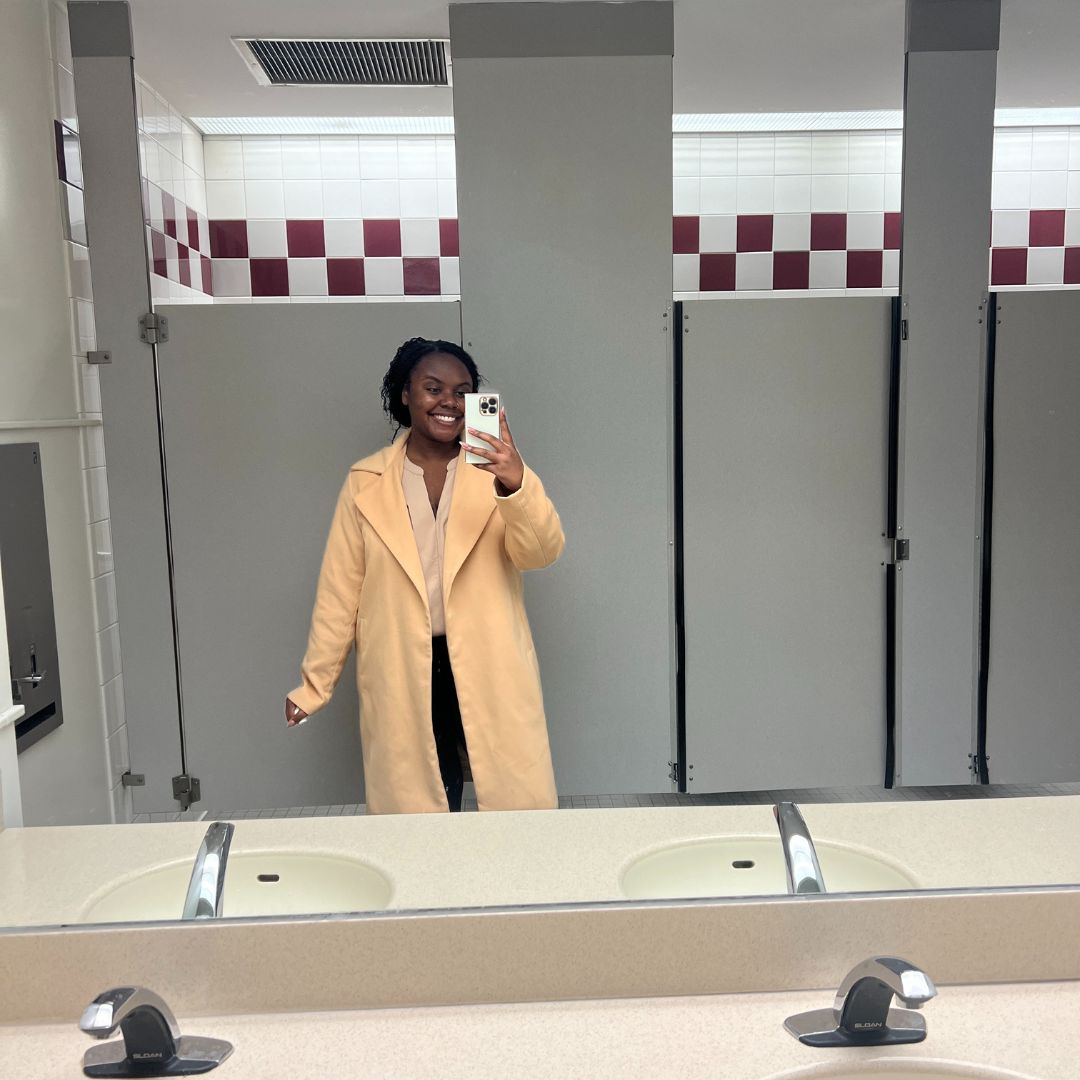
Reading in Arabic
Although I was learning the Gulf dialect of Arabic, we were required to learn how to read in Modern Standard Arabic (MSA).
In addition to the 20-30+ new vocabulary words we were given DAILY, there was also always a set of new words to accompany the reading.
Learning the words from the dialect did help with the reading, but not entirely, as the reading also encompassed different forms of the same word, which was challenging for me.
Cultural Exposure Components
In an effort to enhance the learning experience, there were a few immersive activities within the Arabic section that, as students, we got to engage in:
Arab Restaurant Field Trips
There were a few times when students and teachers from other classes would go for lunch at a local Arab-owned restaurant. This was actually my first time ever having Arab food!
Being from South Florida, there’s more of an emphasis on Latin American, Caribbean, and Southern flavors.
During Ramadan, one of my instructors invited my classmates and I to break Eid al-Fitr with her, another great cultural exposure opportunity.

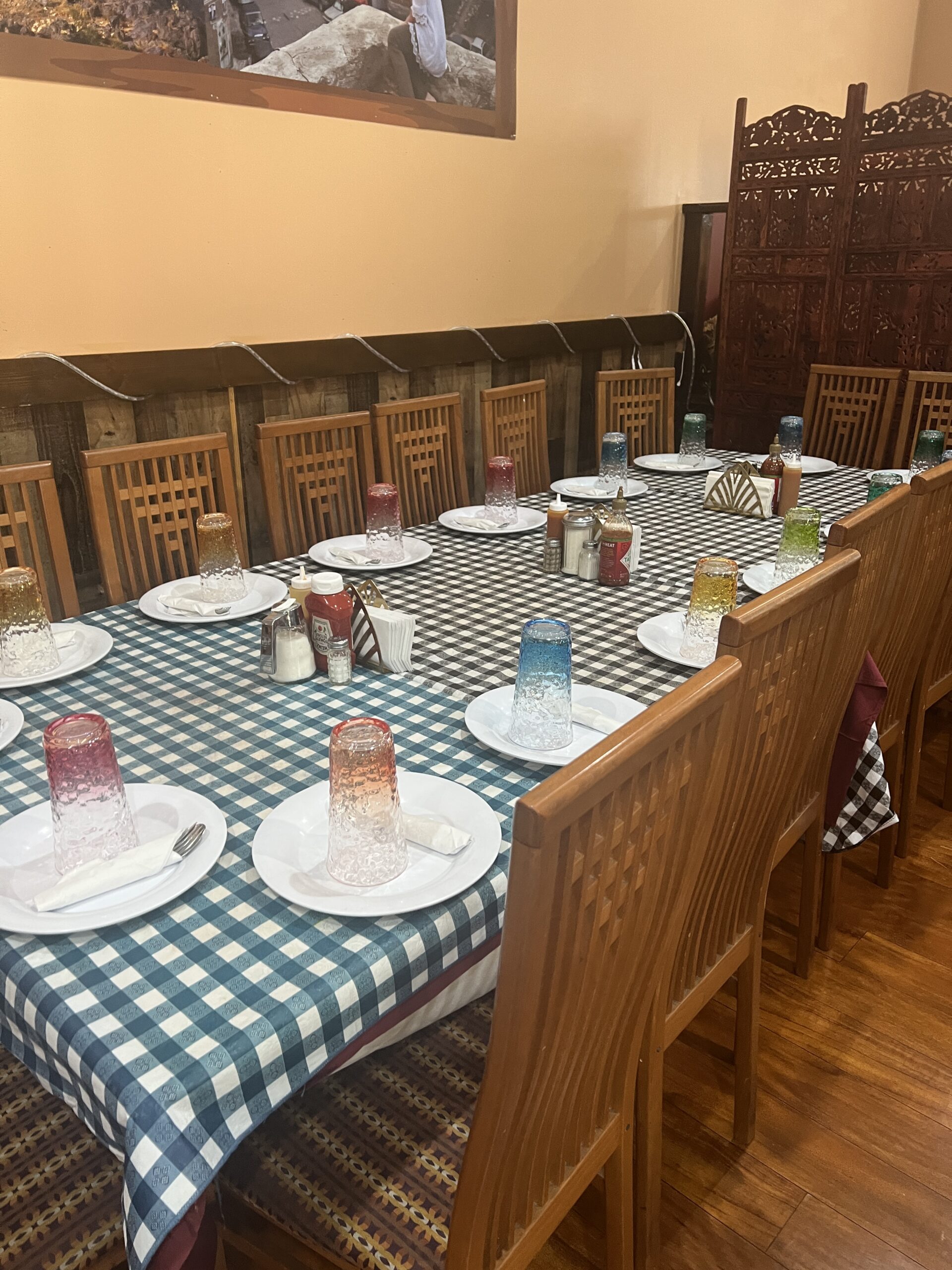
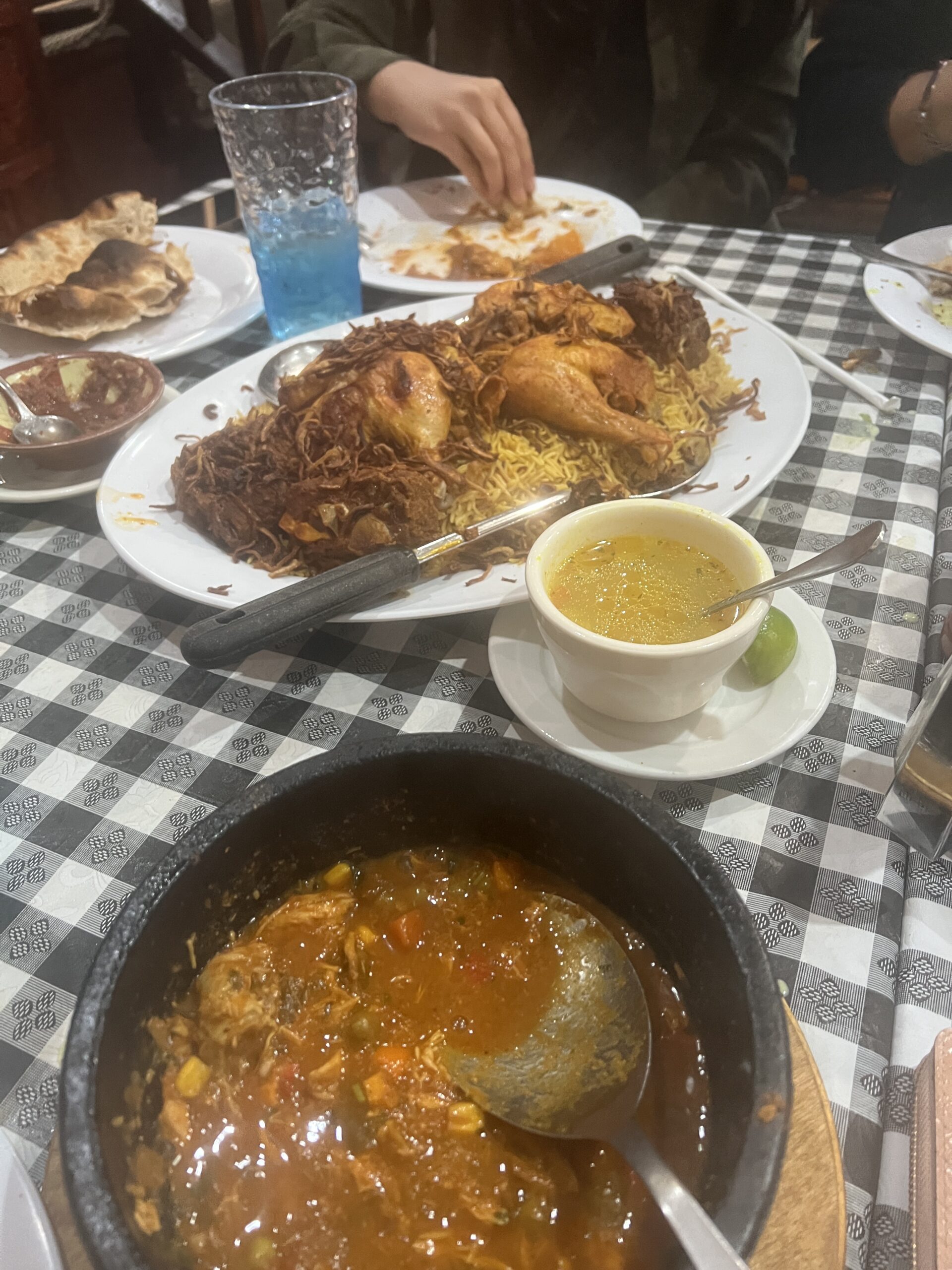
Arab-American Heritage Month Mini Fair
National Arab American Heritage Month is held every April to celebrate the achievements and culture of Arab Americans.
To honor this month, the Arabic section held a mini cultural fair, with stations set up organized by the different dialects and regions, various activities, foods to try, and small performances.
This was a beautiful initiative and an event I personally greatly enjoyed.
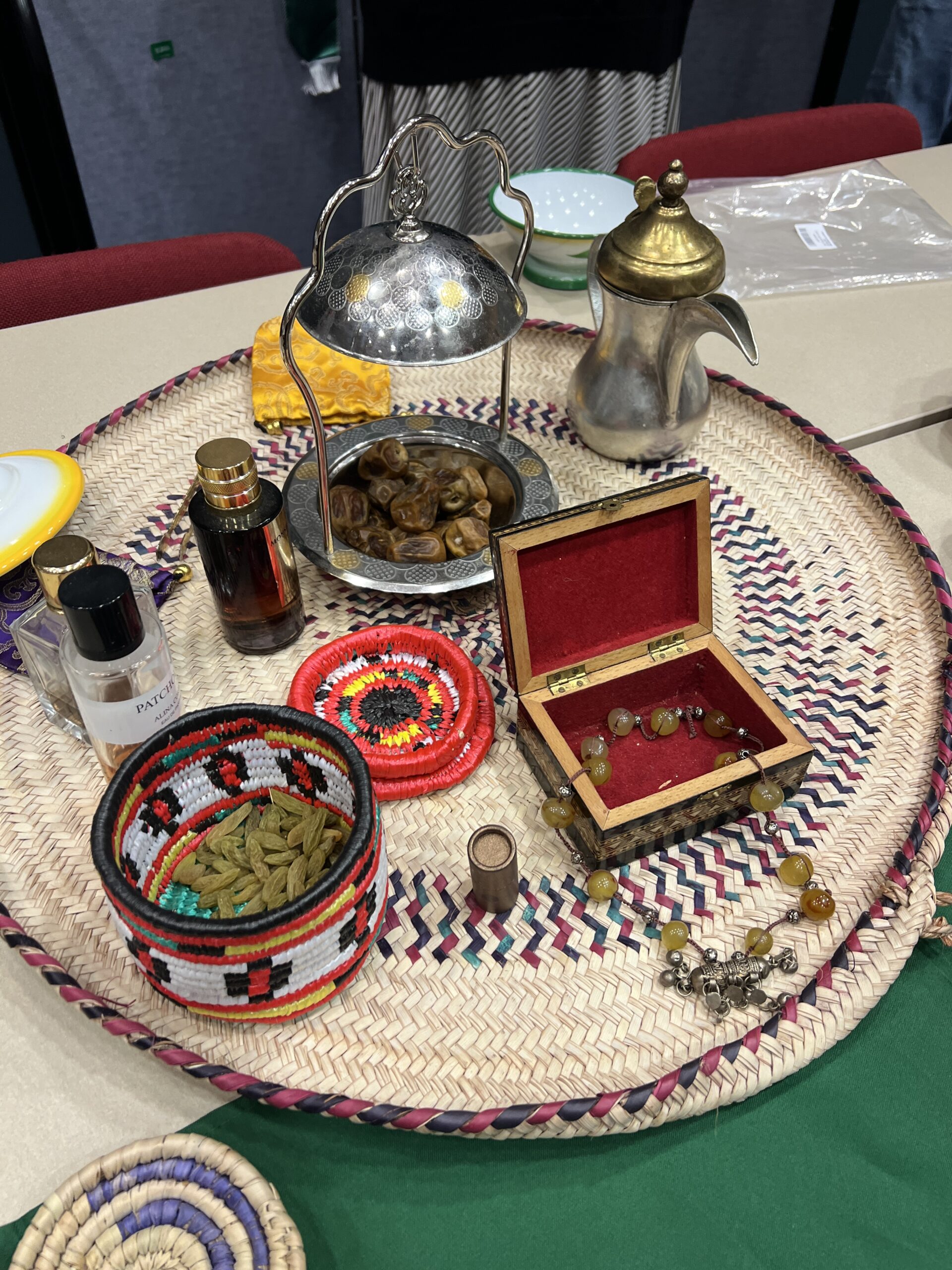
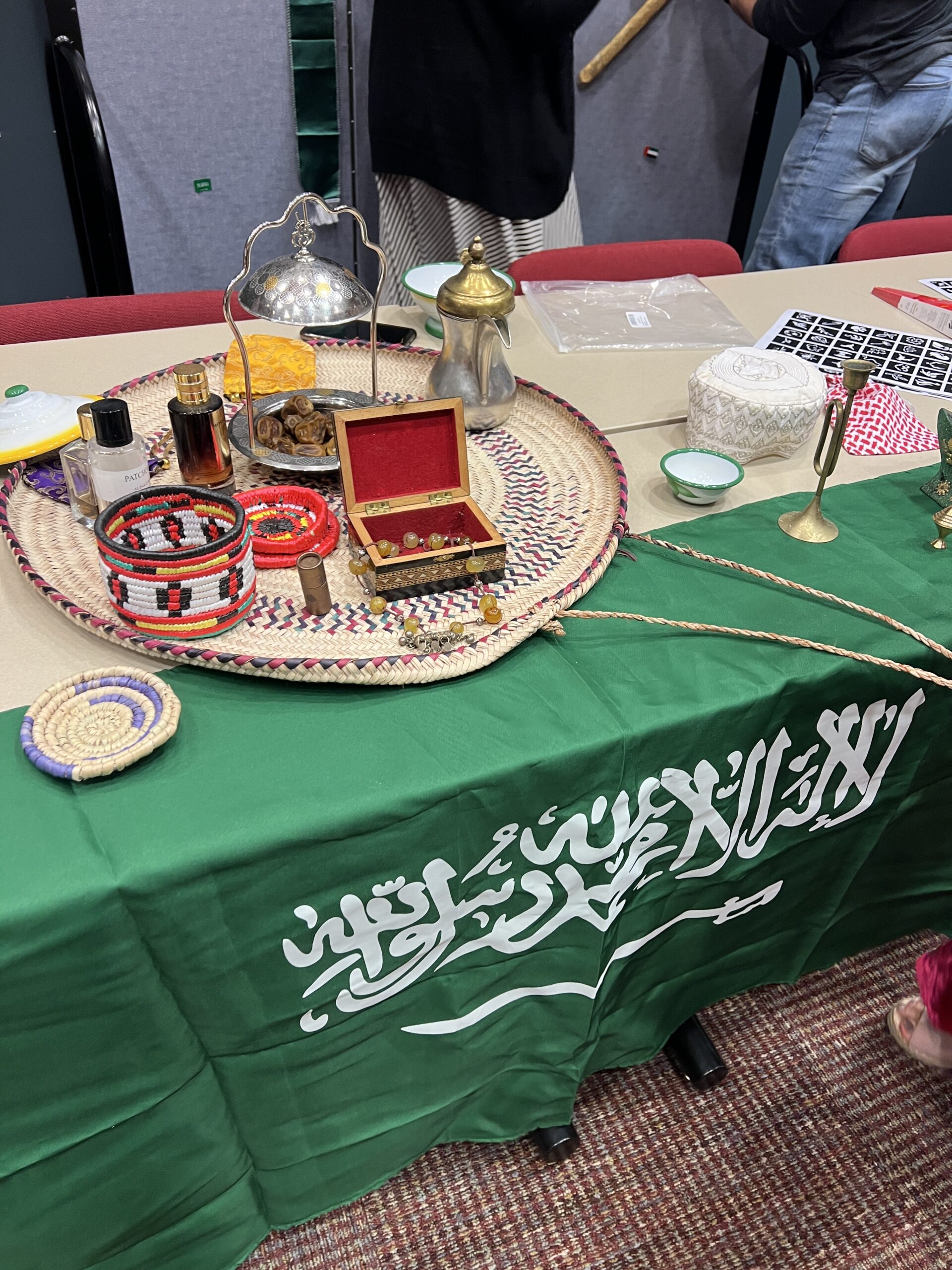

Language Learning with ADHD
My Background with ADHD
Growing up I was your typical straight A, very involved student. I was always expected to perform and meet high standards because that is who I showed people I was.
The final outcome of whatever I produced was always of high quality.
However, what people didn’t see was the effort and process that led to those results, which became more evident during my junior and senior years of high school.
As assignments piled up, I noticed that tasks that should have taken me about an hour took twice as long.
Not because I was having a difficult time with the actual assignment, but because I struggled to concentrate, and my mind would often wander, leading me to abandon the tasks or frequently start over from scratch.
Initial Testing for ADHD
I continued to struggle with this issue into my freshman year of college. I was referred to my university’s Disability Access & Resources Center to get tested for ADHD.
When I went for the assessment, the examiner reviewed my file and noted my high GPA.
They then said that people with ADHD typically have lower grades and that just because I sometimes get bored, it doesn’t necessarily mean I have ADHD, completely dismissing my concerns.
I ended up walking out of the office in tears and thinking that because I’ve always performed and produced high results, no one would ever believe that I was struggling.
I didn’t seek help again after that until years later, when the same issues would arise in my Master’s program, where I visibly fell behind a few times due to the amount of work, and the same dismissal would occur.
For the sake of time, let’s just say that it took me a little over six years to get an official diagnosis and help for ADHD.
Note: Including this personal account is important to me because individuals perceived as high-performing in environments like this often hesitate to share their struggles, making it easy to feel isolated. However, I met other diplomats who were candid about their own experiences, highlighting that those of us facing similar challenges do exist.
ADHD and FSI
It was very clear to me that with the structure of the FSI classes, I would need additional support to be successful for the next eight months.
In the second week of classes, I communicated my concerns to the appropriate authority figure. I mentioned my ADHD diagnosis, but I was told that I would be okay and to just keep going and essentially trust the process.
Not knowing how the language program worked, I took their word for it and continued to push through, but it didn’t get any better.
—

Self Advocating for Accommodations
Through a depressive period, I finally made the tough decision to fight for support and accommodations for the lasting duration of my language training.
This meant compiling a bunch of paperwork, coordinating this paperwork with my physician, waiting for meetings to happen between certain authorities at the Institute and the respective department that handles accommodations, and more.
I hesitated to have ADHD on my file with the organization because, honestly, throughout my time in language training, I already felt like I was being looked down upon and didn’t want one more additional thing to work against me.
In the end, I was notified that the accommodations I sought were denied due to a ‘lack of resources.’
While I understand that I am one student among many in the system, I believe that resources can be made available if there is a willingness to prioritize them.
——–
I genuinely like Arabic and enjoyed studying it. I would love to keep it and continue to improve it during my time in Doha.
However, I would have enjoyed it so much more with a different structure that catered to my needs as a neurodivergent individual.
A Recap of My Experience Learning Arabic
My language program was divided into four rotations, each one lasting about two months long, maybe shorter or longer.
With each rotation, each class switched instructors and sometimes classmates. The switching out of instructors is done to give students exposure to various teaching styles and ways of speaking.
In this section, I will provide a brief overview of each rotation and share my experiences with each one.
Rotation One
In rotation one, we were introduced to the basic elements of the language, like the alphabet, and easier concepts like family, weather, and food.
The language we will need in everyday conversation.
My instructor taught us how to count to 100 on the very first day!
I absolutely loved my first rotation, and I am really happy, looking back, that my start to Arabic was so positive and nurturing.
I can say that I genuinely looked forward to class everyday and learning because it was an enjoyable experience.
My instructor curated a warm environment, preparing Arabic coffee, tea, and allowing us to try various Arab delicacies and foods throughout our time together.
I even earned the nickname بنت in Arabic, which translates to “daughter” in English.
It also allowed me to get close to one of my good friends in the Service!
At this point, I didn’t feel too much pressure to perform, but I wanted to truly grasp what I could during my training by memorizing some vocabulary.
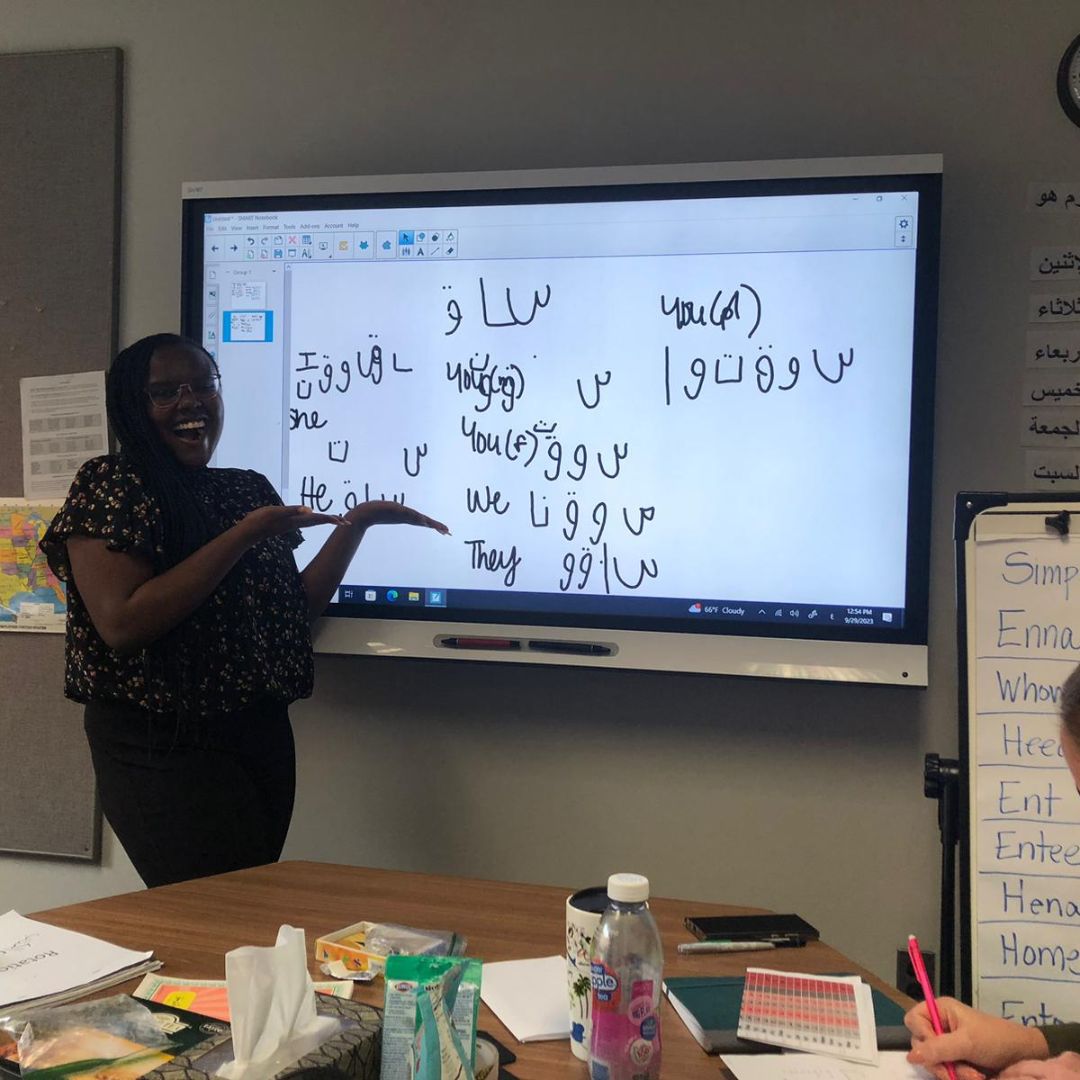
Rotation Two
The second rotation involved a switch in instructors and classmates, which changed the class dynamics and my learning experience.
My second instructor focused heavily on grammar, and the amount and type of vocabulary we were expected to memorize increased.
I can honestly say that I did not enjoy this rotation much, and it was very hard to adjust.
There was not much of a classroom culture, and as I mentioned before, I was expected to memorize 24-30 new vocabulary words in less than 24 hours daily.
I attribute this to the broader language education system versus the instructor(s) themselves, as they also seemed overwhelmed at times with staying on track with the one lesson-a-day format unless they rushed to get through all of the material for the day.
I started to feel as if there was no regard for the well-being of students, and my body and mental health reacted to the pressure and nonstop intake of new information in another language.
I faced a challenging period during which I struggled to maintain my usual level of functioning, which impacted my ability to keep up with the course load and led to significant physical changes to my body.
My biggest frustration during this period was the limited opportunity for rest and the need for greater recognition that we are humans, not machines.
I really struggled to understand the program’s cramming style, especially since we had 8 months of language instruction.
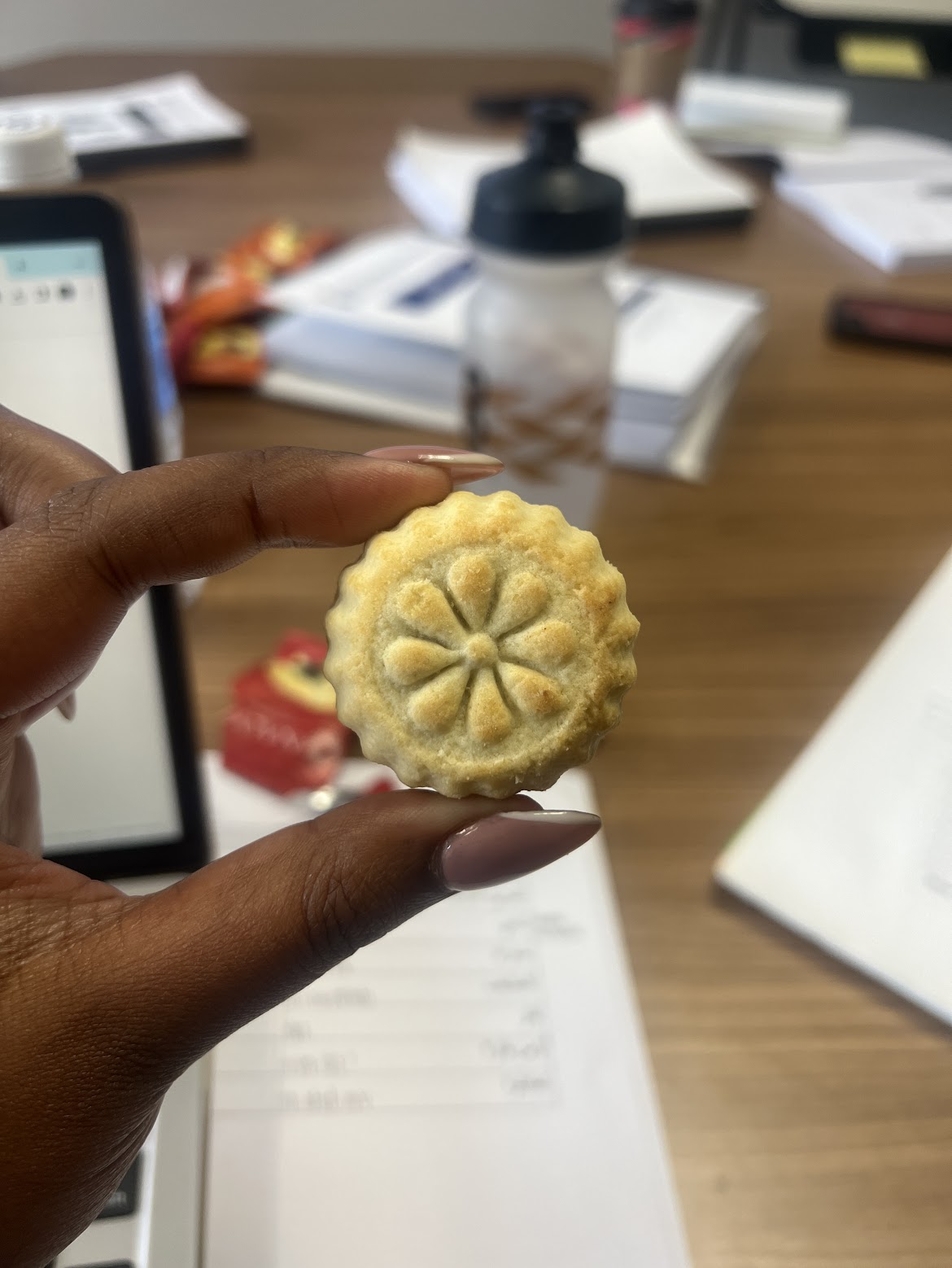

Rotation Three
I was placed into a new class during this rotation, which severely impacted my learning experience even more.
In addition to the other issues I was having, trying to integrate myself into a new class with an extremely different dynamic, especially as a new person, added an unnecessary layer of discomfort.
It was evident that my other classmates were at a different performance level than I was, contributing to a particular dynamic in the classroom.
On one occasion, we had a substitute teacher who, upon noticing my difficulty with the text, paused the class to inquire if I was new to the rotation and suggested that I should be able to read it.
This was an uncomfortable moment in front of my new colleagues and highlighted the need for greater understanding and accommodation in this environment.
That was one of many instances where I could have advocated for myself but chose not to out of concern for how it might be perceived and to avoid making it a topic of discussion among others outside of the classroom.
Fortunately, a mid-level colleague, with whom I had previously discussed the challenges of neurodivergence in language training, stepped in to support me during this moment and explained to the instructor that there are various learning challenges individuals may face that can impact their performance.
Her advocacy was incredibly valuable to me, and I am deeply grateful for her support.
This is a prime example of how one can use their privilege to advocate for colleagues who may have different experiences and backgrounds.
On a positive note, I began to receive one-on-one instruction from a reading coach, which drastically improved my performance. It was a low-pressure environment, which made me less anxious, and I began to be able to read text at a higher level.
Rotation Four
I switched to a new class for this rotation. It was more laid-back and had a better classroom culture, but my enthusiasm had waned, I would say, at this point, and I was truly just trying to get through the end of language training.
I was still waiting to hear a decision about my accommodation needs, which took longer than I believed it should.
During this rotation, as the time for the final exam approached, I was able to focus less on vocabulary and more on speaking on actual topics, which helped tremendously and made it a lot more enjoyable.
With the help of administration, I got a modified work schedule with more one-on-one instructional support to help me prepare for the exam.
I am also happy to share that I passed my end-of-training exam with the required score, so yay!
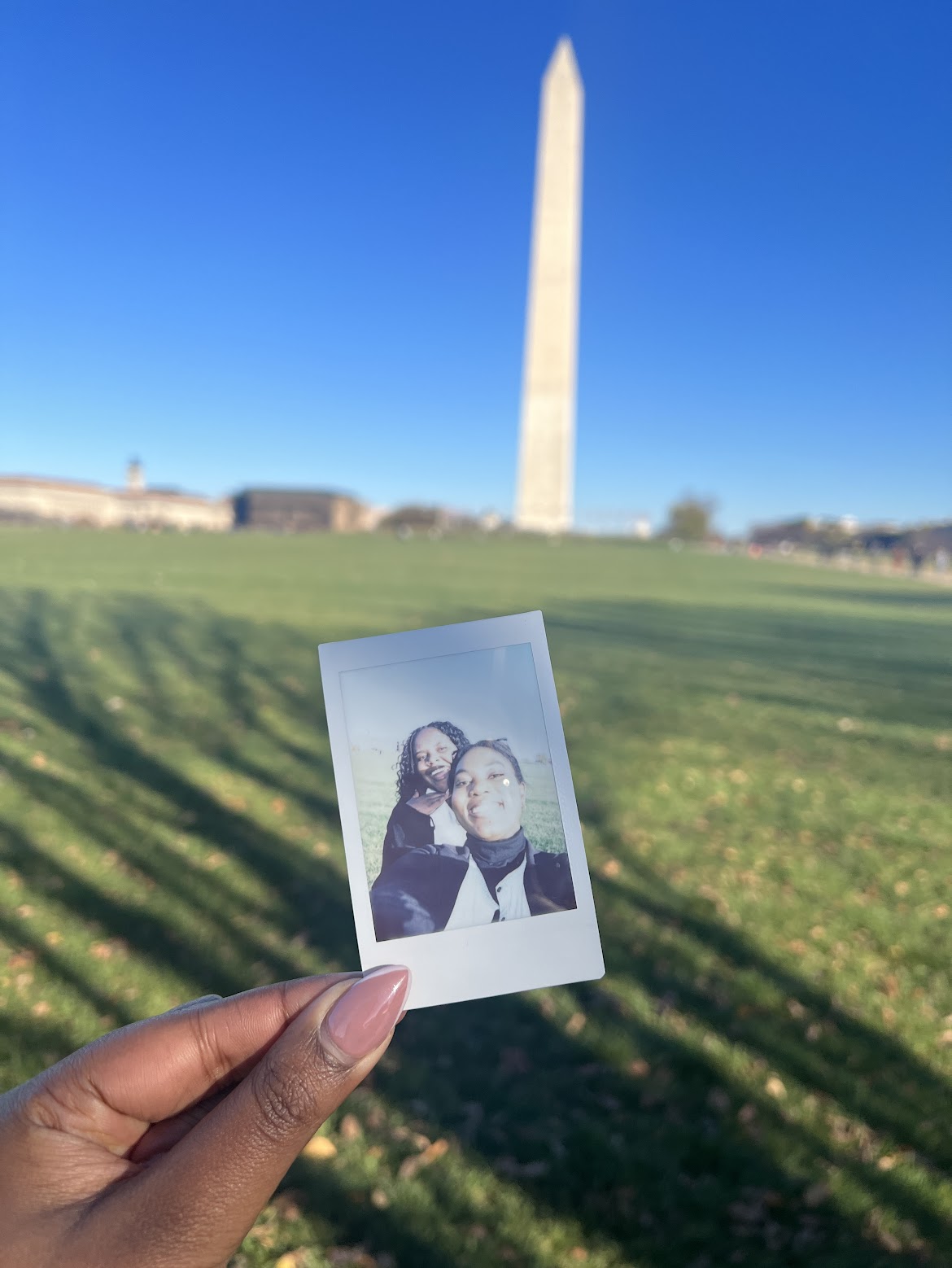
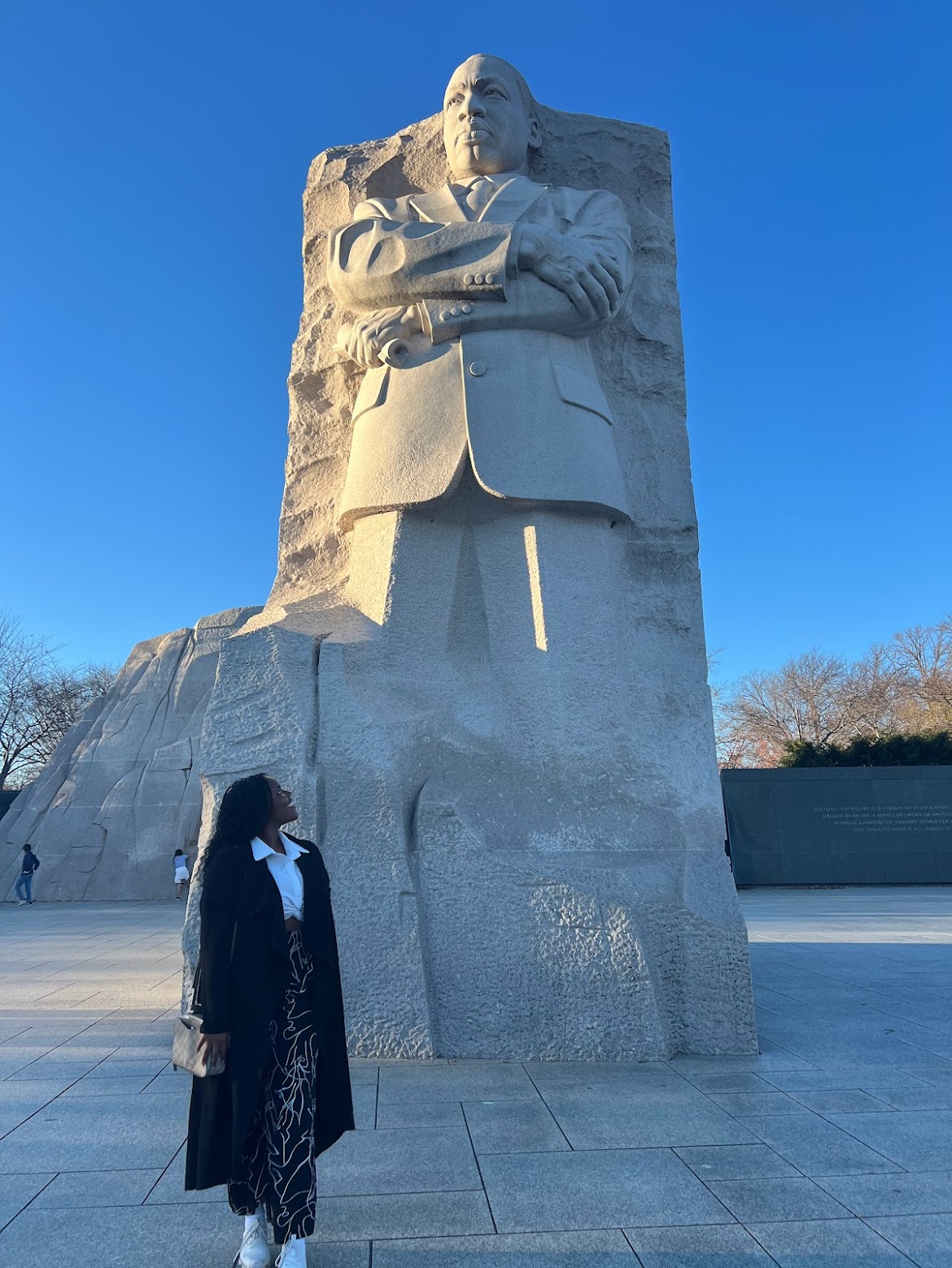
Neurodivergency in Language Learning Moving Forward
The structure of learning reveals challenges in adequately supporting neurodivergent learners, highlighting systemic issues in meeting diverse learning needs within the program itself rather than solely relying on external resources.
I deeply appreciate the support from the Arabic Department for providing additional resources, as detailed in the previous section.
However, I am disappointed in the outcome of my accommodation request from the official accommodations office. I hope for more positive experiences in the future, also recognizing that I initiated my accommodation request later in the process.
During my training, I also had the opportunity to connect with others facing similar challenges. It was reassuring to know that I was not alone in navigating these issues.
Since my time in language training, I have actively engaged in constructive dialogues with certain individuals within the organization to address my concerns and contribute to creating a more inclusive environment moving forward.
Tips + What I Would Have Done Differently
For anyone approaching an intensive language course, I’ll list some tips I can share based on my experience that may be helpful.
Take class and studying very seriously in the beginning
If there is a time that counts the most with language training, it’s in the beginning and toward the middle of training in my opinion.
Toward the end, it becomes about taking all that you’ve learned and using it to speak and read about different topics and less about memorizing more and more words.
However, keeping up with the vocabulary as best you can in the beginning helps you follow the daily lessons.
Do not transliterate any text
I highly recommend not transliterating text and taking the time (no matter how painful it may be) to learn how to read in the actual language you are learning.
In my case, once the readings got more difficult, I started to write out the sounding of the words to help me read faster, but having to transliterate most of the words took additional time, and I had to break that habit.
Transliteration is not conducive to reaching a certain level of fluency, so I would stay away altogether!
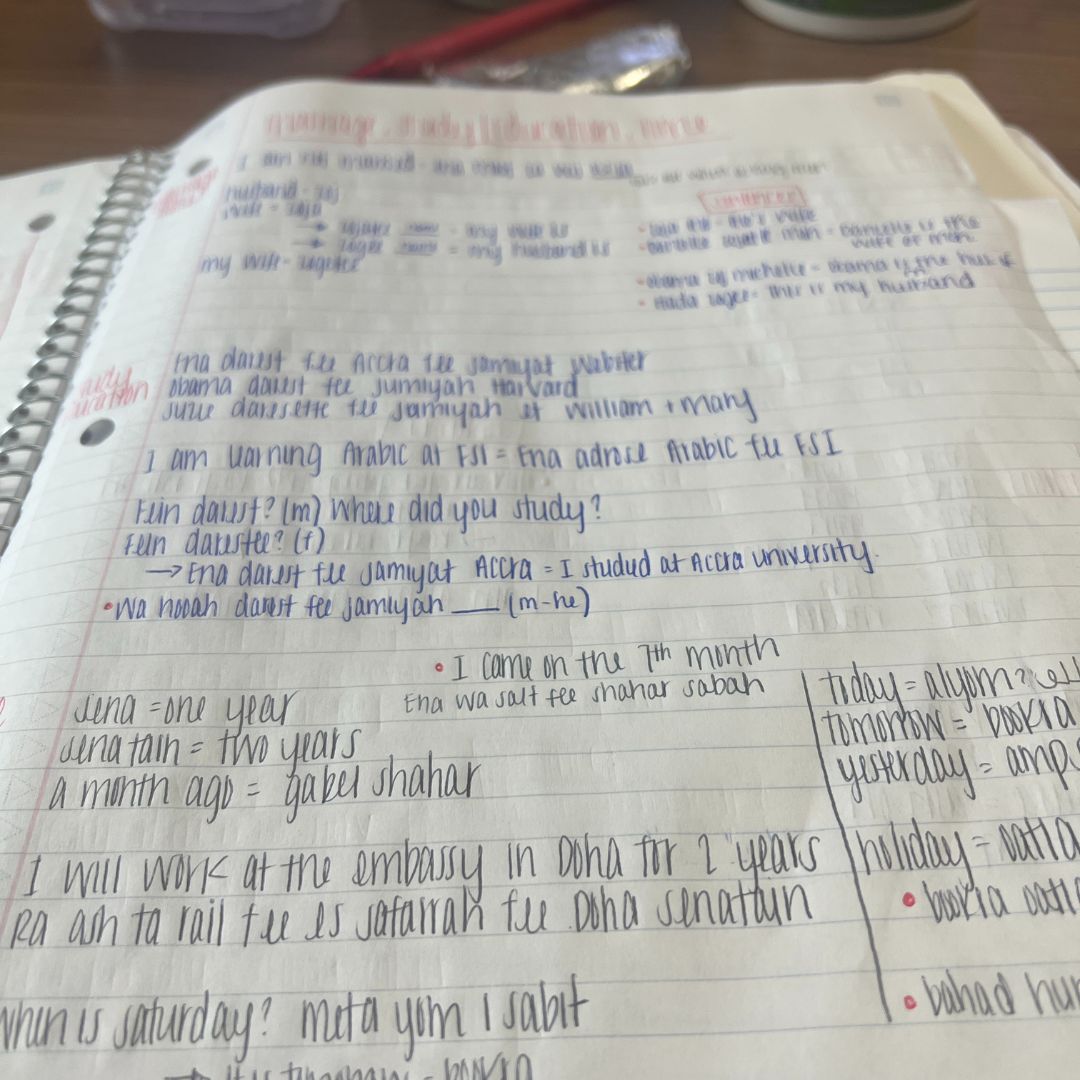
Have a schedule after class
The last thing you’re going to want to do after being in a language class for 5 hours is study some more.
However, homework assignments and reviews will help you, so you’ll want to budget time for them and create a routine/schedule that works for you.
This doesn’t just have to revolve around studying.
To give my mind a break, I tried walking on a treadmill for 30 minutes, preparing my lunch, outfit, and alarm, making time to work on personal projects, etc., after class daily.
Language training can be extremely draining, so this might help you manage other areas of your life.
Find study buddies
Try to form study groups or have study dates with people outside of your classmates within the language you are studying.
Especially in the context of learning at FSI, only those at the Institute can relate to the stress, learning environment, and material, so it’s great to have people to lean on that way.
Be patient with yourself and give yourself grace during tough times
Language requires being humble, especially if you’re not doing well or good at it.
It takes a lot to show up every day and tackle a new language.
Even if you are doing well, there will be up and down days. Give yourself grace during those times.
Manage your mental and physical health as much as you can
It was interesting to see the impacts of stress on my body and mental health during this time.
I had sleep difficulties for three months, many nights where I did not sleep at all, extreme weight gain and weight loss fluctuations, delayed menstrual cycles, abnormal blood test results, and more.
There were good days and bad days, but it’s hard to feel like it doesn’t consume your life at some points.
Many of my colleagues expressed feelings of burnout, fatigue, and other things, as time to recharge and restore your well-being can feel non-existent.
Try to stick to a routine and design a day-to-day wellness routine that works for you.
I tried walking on the treadmill every morning, meeting my daily water intake goals, being mindful of not oversnacking during class, and doing other things to stay on track with my personal goals.
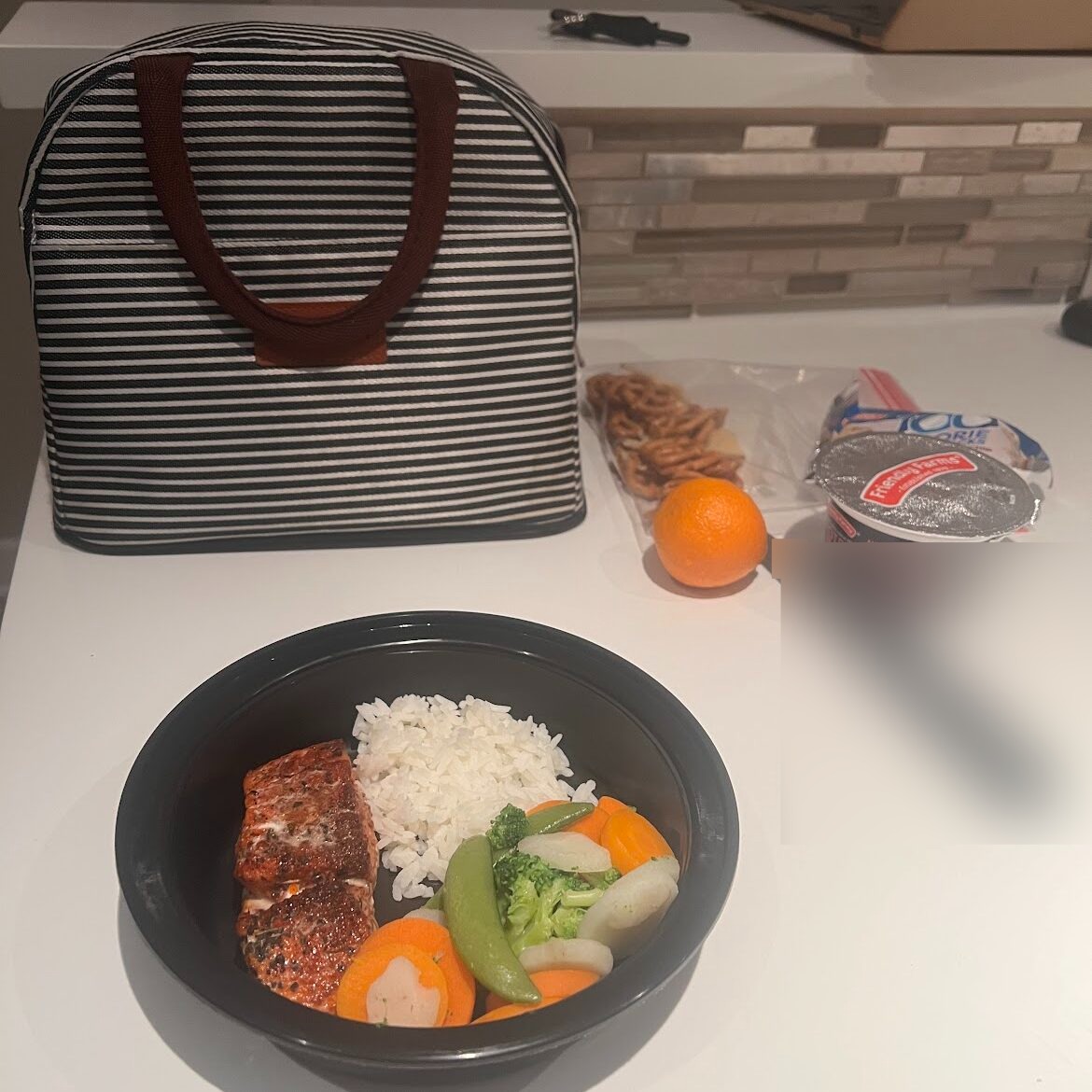
Advocate for yourself early on
My biggest lesson learned throughout my time in language training is that I should have advocated for myself earlier.
If I had trusted my instincts and what I knew about myself and my learning style rather than what was being told to me when I expressed my concerns, I believe my experience could have been different.
This was a new experience and system for me, so I didn’t push back in the beginning because I wasn’t sure if it would get better or not, but it didn’t. Learn from what I did not do.
Trust yourself and advocate.
Final Thoughts on Language Training
Language training as a diplomat can be intense. Some people have an amazing time, while others experience more difficulties.
However, it is still a great opportunity to learn a language before moving to a new country, and will help with navigating the linguistic and social aspects of a new environment.
This blog post was hard for me to write and took me two months after my language training ended to write and publish.
Believe it or not, there is still a lot I left out.
There’s so much that I went through over this last year since entering this career and it almost made me rethink whether or not I should continue being honest about my experiences in the capacity that I do.
Although there are so many other officers I spoke with who went through the same things, this doesn’t always feel like an emotionally or mentally safe space to openly discuss the not-so-glamorous aspects of this career, especially as a newcomer.
Looking back, I’m proud to know that everything I went through and learned during this process will help me the next time I have to learn a language through this type of program structure.
Yes, I would come back and do another language at FSI!
The next language I’d love to learn at FSI is French, and I look forward to seeing if my next post will make that desire a reality.
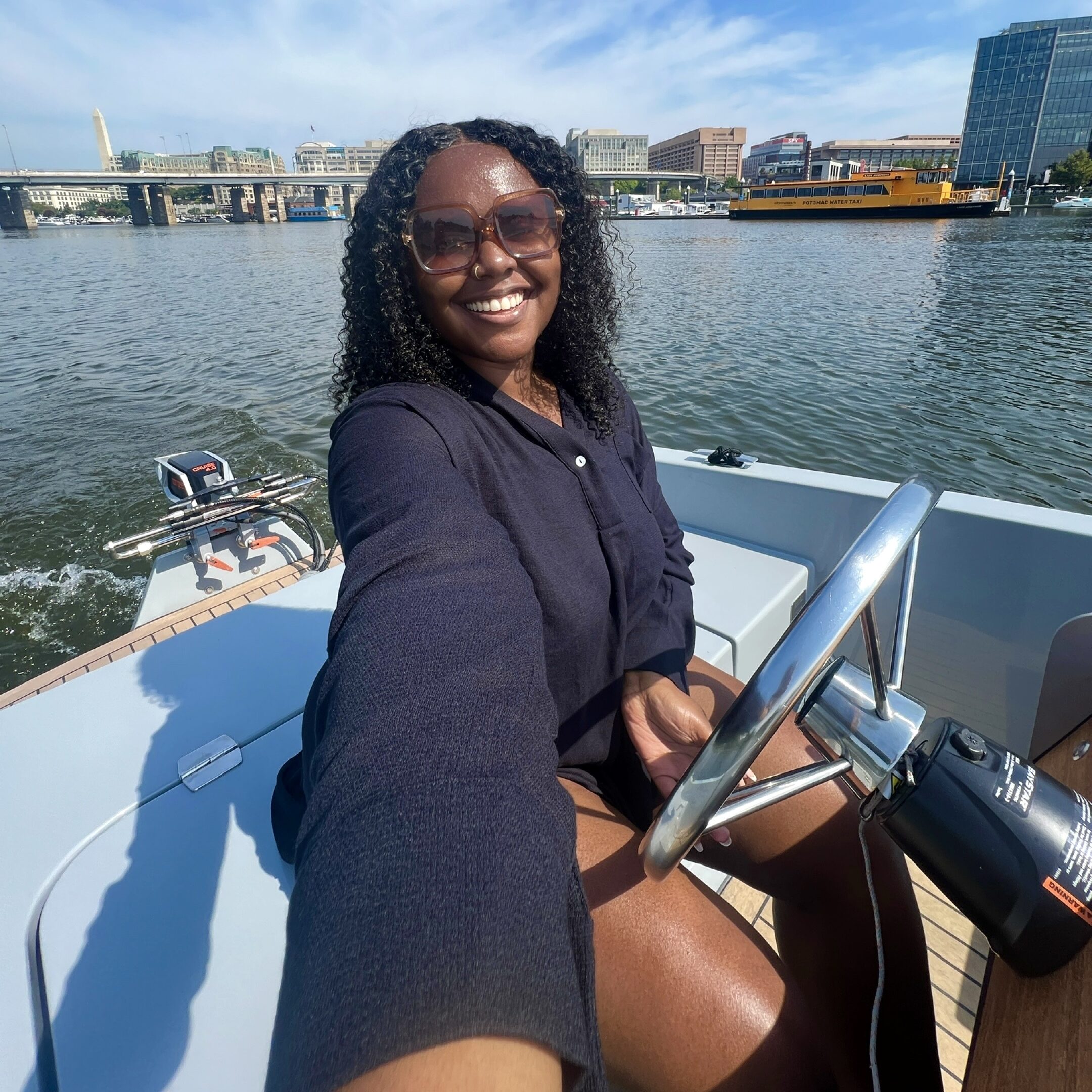
What’s Next?
My end-of-training exam was on a Friday, and that Monday morning, I started another information-heavy training session that lasted a total of six weeks.
I have a few more training sessions before heading to post in less than a month, all while trying to pack up my apartment, prepare for life in Doha, and kiss my life in the D.C. area goodbye (for now!).
I am so excited to meet my new colleagues in Doha, get out of training, and get into the field to finally start one of the many jobs diplomats get to do abroad.
There’s so many personal lessons I’ve learned while here in the D.C. area that will serve me well while I navigate the Embassy and work life abroad.
I hope to continue sharing through it all.
(God willing) ان شاء الله
Have any questions about language training as a diplomat or language learning in general? Leave me a comment below and I’ll get back to you!







